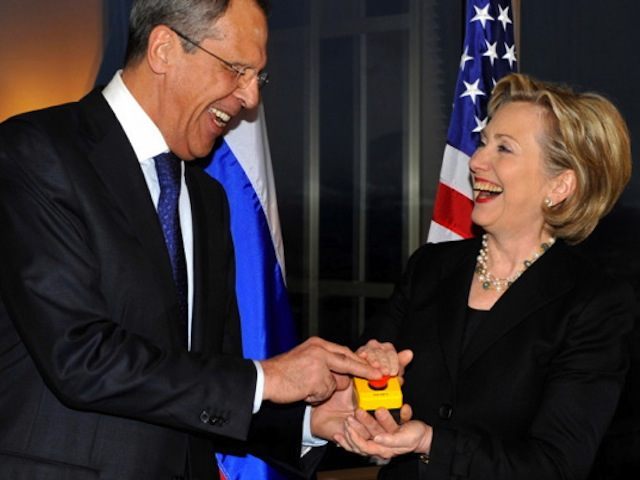Hillary Clinton’s campaign has been placing increasing emphasis on a bizarre conspiracy theory that claims Russia is hacking the U.S. election to ensure that Donald Trump wins.
There is not a shred of evidence to support the theory, and there is no real evidence that the American public is buying the claim, either. Moreover, it seems puzzling to broadcast to your supporters that you expect to lose the election.
But the conspiracy theory could serve another purpose: a Plan B in case Trump actually wins.
The idea that Russians could have intervened to steal the American election — on behalf of a man the left and the media have demonized as the second coming of Adolf Hitler — provides a convenient pretext to nullify the results if necessary. The idea was first floated in the Washington Post by Anne Applebaum last week, who described a step-by-step process through which Vladimir Putin would attempt to rig the election, either to defeat Clinton or to deny her administration legitimacy if she wins.
First, Applebaum argues, Trump would be surrounded by pro-Russia advisers and allies. Next, Russia would continue to try to embarrass Clinton with hacked emails from the Democratic National Committee and elsewhere. Third, she writes, “[o]n or before Election Day, Russian hackers will seek to break into the U.S. voting system.” Fourth, Russia “might try to get Trump elected,” or “might try to rig the election for Clinton, perhaps leaving a trail of evidence” to frame her campaign as culprits.
That, she suggests, could lead to media hysteria, hearings, legal challenges, mass rallies, a constitutional crisis” — in other words, a possible nullification of the election results. And even if the hack fails, she says, Russia will have achieved its purpose of sowing chaos: “Rumors of election fraud can create the same hysteria as real election fraud.”
And Trump would benefit either way, because his speculation earlier this summer that the election would be “rigged” would prove him to have been correct. He might not win the presidency, but he would be propelled to media stardom. “He could be a hero,” she says.
Note that Applebaum’s conspiracy theory does not actually depend on whether Russia is actually trying to hack the election, nor even on which candidate Vladimir Putin actually prefers. (He has praised Trump, but Clinton eagerly pursued President Barack Obama’s so-called “reset” with Obama in 2009, which gave in to Russia on missile defense and much else besides.)
The point of raising such unfalsifiable theories is merely to cast doubt on the election (which Applebaum accuses both Trump and Russia of doing, en route to doing it herself).
And that lines up will with Clinton’s interests. Just as Trump suggested the election could be rigged against him — in his first public event after the Khan controversy exploded — so, too, Clinton and her aides are creating an excuse for failure — one that could, as Applebaum suggests, be used to challenge the result if she loses.
Joel B. Pollak is Senior Editor-at-Large at Breitbart News. His new book, See No Evil: 19 Hard Truths the Left Can’t Handle, is available from Regnery through Amazon. Follow him on Twitter at @joelpollak.

COMMENTS
Please let us know if you're having issues with commenting.